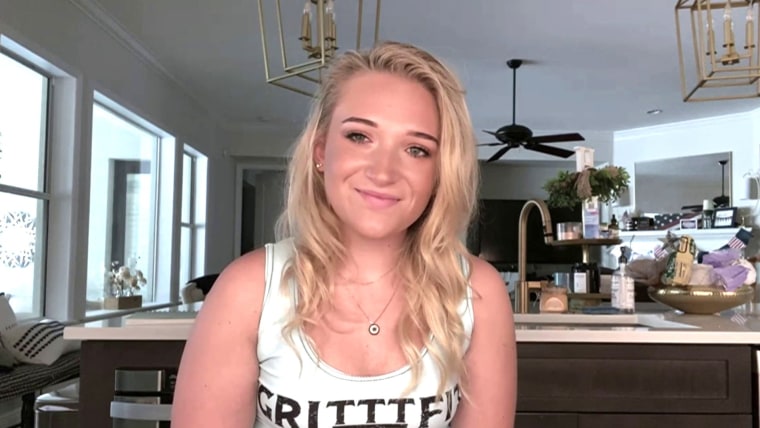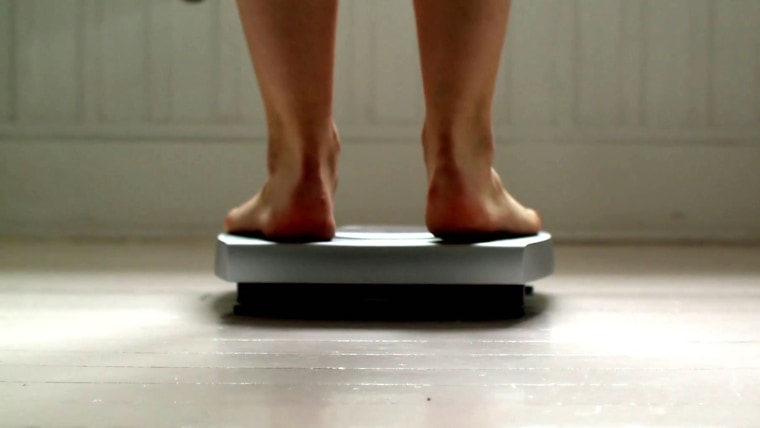How The Weight Watchers Point System Works
How The Weight Watchers Point System Works
WW, formerly Weight Watchers, uses a points system to help you keep track of what you're eating so you can lose weight. But does this system work? And is it a good long-term plan?
Some big names are behind the program — Kate Hudson and Ciara are ambassadors, and both joined partly to lose weight after giving birth.
And for some people, the program brings solid results. A woman who lost 65 pounds in a year shared her success story with TODAY.
To start, let's talk about how the program works. You can begin with an online personal assessment, where you answer a few questions about your nutrition, activity, sleep, and mindset. Your answers guide you toward features that can help you improve in the areas where you would like to make changes.

What are the different WW plans? And how much does it cost per month?
You can choose from four plans:
- Digital: gives you access to the app's features ($3.97/week).
- Digital 360: includes coaching support and additional wellness content ($5.07/week).
- Unlimited workshops + digital: adds in-person and virtual support from a coach (varies by location, in my area, it's $8.13/week).
- 1-on-1 coaching + digital: gives you a private coach who helps you build a customized plan ($59.95/month after a discounted first month).
What is the WW point system?
A crucial part of the WW program is SmartPoints — values that apply to food. Based on your personal assessment, goals, gender, and current height and weight, you aim to keep the number of points you eat per day within a specific limit. Your number is individualized to your situation.
"The points system is designed to help you build awareness of foods that give you some satisfaction at different calorie, fiber, and protein levels," Samantha Cassetty, a registered dietitian based in New York City and the coauthor of "Sugar Shock," told TODAY.
Cassetty goes on to point out that the only way to lose weight is to promote a calorie deficit. "The easiest way to do that — not that it is easy — is to learn to be satisfied with foods that also help you reduce your calorie load," she said.
How do you calculate WW points?
It starts with calories, but that's not all that counts. Foods high in saturated fat and sugar get higher points while foods that are high in protein get fewer points.
How many WW points do you get?
You might have a daily budget of 23 points. (Does everyone get 23 points on Weight Watchers? No. They aren't the same for everyone.) You could choose:
- A ham-and-cheese omelet for breakfast (7 points).
- Apple cider chicken salad for lunch (6 points).
- Filet mignon with herb sauce and a light beer for dinner (7 points).
- Chocolate chile cookies for a snack (3 points).
What can't you eat on Weight Watchers?
No foods are off-limits. But if you choose food with higher points, you'll want to balance it with lower-point foods to stay within your total limit.
Some foods have zero points
Which foods are zero points for Weight Watchers? There are many foods with zero points — you can eat them without measuring or tracking them. That doesn't mean you can gorge on them. But, you're probably not going to overindulge on blueberries, coleslaw mix, or spinach.
Different WW plans give you a different ratio of SmartPoints and zero-point foods. The various plans give you more flexibility or more structure, whichever works best for you to meet your goals. The plans include from 100 to more than 300 zero-point foods — fruits, veggies, lean proteins, and whole grains.
Here's what the experts like about WW points
Dietitians pointed to several factors that can make the WW points system a good choice:
- It's based in science. Bonnie Taub-Dix, RDN, author of "Read It Before You Eat It: Taking You from Label to Table," told TODAY, "I applaud WW for going with the science."
- No foods are off-limits. "To take care of yourself and lose weight, all foods can fit. That's been my philosophy as a counselor my entire career," Taub-Dix said. "Not having an 'allowed' list and an 'avoid' list is a positive attribute."
- It goes beyond simply tracking calories. Taub-Dix especially likes how saturated fats are factored into the points system: "The focus on saturated fat is good, especially now with so many popular diets like keto encouraging higher saturated fat intake. I'm glad WW is still focusing on saturated fat."
- It can be easier to track points than calories. "Points for many people are an easy route to help them lose weight and eat better. Numbers like 1, 2, 3 and 4 are easier than calories," Taub-Dix said.
- It can teach you about healthy food choices. Cassetty notes that along with your diet, things like exercise, sleep, and stress also contribute to your overall health. (The WW program can help you improve in those areas.) That said, the points system can help with the food aspect of your health and wellness. "It highlights the fact that foods with high points might not be filling," Cassetty said.
Here's where the experts say the points could fall short
The points system may not work for everyone. Here are a few downsides dietitians pointed out:
- Tracking points can get tiresome. Cassetty said a downside of points is that it can be exhausting for people to track. "WW does try to address that. There are certain foods you don't have to track," she said. "People get burned out on tracking." Taub-Dix agreed: "This is not for people who don't want to get involved in math at all, even though counting points is simple."
- You can make poor nutritional choices. Like counting calories, counting points can promote less healthy food choices. "If you're always trying to stay within a certain number of points or calories, you're not necessarily thinking about the quality of foods you eat," Cassetty said. "I've seen people go down that road of eating a lot of lower-point processed foods rather than addressing their snack habit."
The bottom line
WW points might help you meet your wellness and weight-loss goals long term. It depends on what you want to achieve and what changes can fit into your lifestyle. "If you are going to pick a plan to eat healthier, whether to lose weight or not, you need to find something you can incorporate into your life, not change your life for," Taub-Dix said.
Related:

Stephanie Thurrott is a writer who covers mental health, personal growth, wellness, family, food and personal finance, and dabbles in just about any other topic that grabs her attention. When she's not writing, look for her out walking her dog or riding her bike in Pennsylvania's Lehigh Valley.
How The Weight Watchers Point System Works
Source: https://www.today.com/health/how-do-ww-points-help-you-lose-weight-dietitians-explain-t226927


Tidak ada komentar:
Tulis komentar